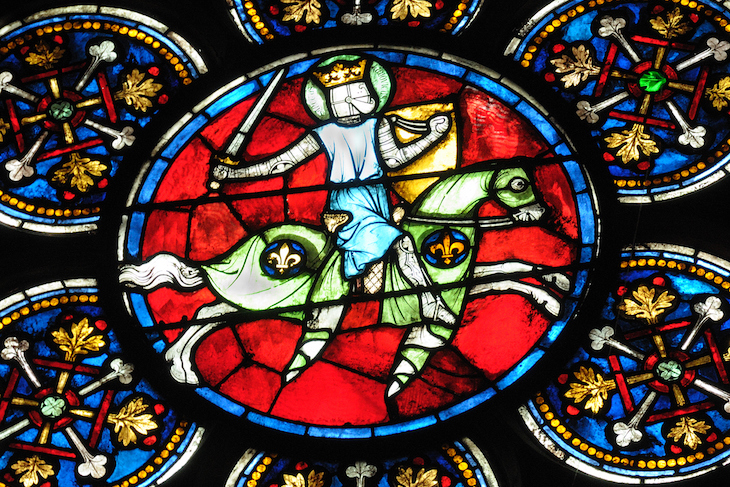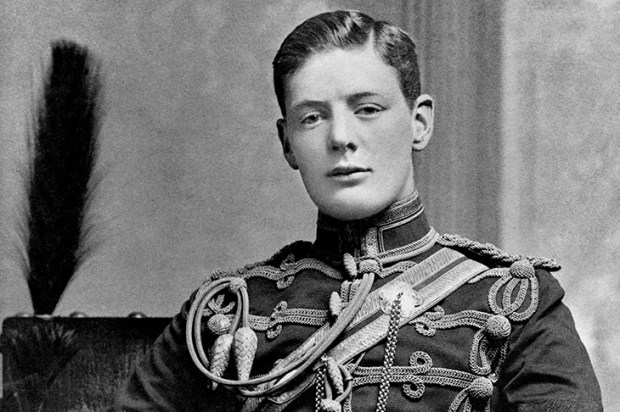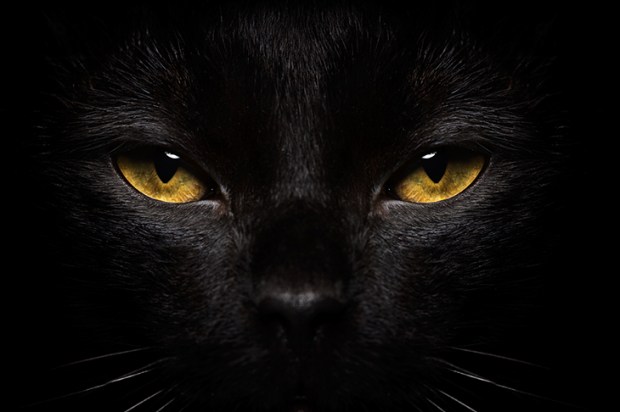For your perfect summer read I’d recommend Zoé Oldenbourg’s 1949 classic medieval adventure The World Is Not Enough. It’ll comfortably occupy you for a good fortnight and while it’s thrilling, romantic and heartbreaking enough to keep you turning the pages, it’s also so beautifully written and historically illuminating that you won’t feel the emptiness and self-disgust you do when you’ve finally got to the end of a bog-standard airport thriller.
It begins in 12th-century France but then moves to the wonderfully exotic-sounding Outremer, the contemporary name for the crusader states on the far side of the Med, such as the Principality of Antioch, the County of Tripoli and the Kingdom of Jerusalem. These were the destinations to which Europe’s warrior-pilgrims headed to purge themselves of their sins by bathing in Muslim blood and defending the cross.
Many, if not most, would die horribly — some with their severed heads tied to the spears of victorious Saracens, some in dungeons, some of dysentery or heatstroke. But for those who could stick it the rewards were huge: untold riches, abundant citrus fruit and gorgeously furnished castles and palaces abounding in luxuries rarely encountered in cold, damp, miserable northern Europe.
Though you get a sense of this in Olden-bourg’s masterpiece, the non-fiction work I’d recommend as a companion piece (though it’s set a decade or so earlier) is Jeffrey Lee’s equally gripping God’s Wolf. I knew Jeff at Oxford — he was part of that extraordinarily brilliant Balliol generation that included Boris Johnson, Aidan Hartley, Robert Twigger, Lloyd Evans and Justin Rushbrooke, the QC who just won Cliff Richard’s case against the BBC — but I had no idea what he was reading.
Turns out that it was Arabic and Islamic History, which obscure knowledge he has put to hugely effective use in the form of a compulsively readable biography of Reynald de Châtillon. Reynald was, by Lee’s account, the greatest of all the crusaders — the one most abundant in knightly virtues and also the one who saw the heaviest action and had the most improbably mixed fortunes: from minor noble and mercenary to Prince of Antioch; from abject prisoner in the dungeons of Aleppo to victor of perhaps the greatest crusader battle and kingmaker in Jerusalem; thence to his death at the hands of Saladin.
Today, he is barely known in the West, except for his appearance in Ridley Scott’s blockbuster Kingdom of Heaven where, says Lee, Brendan Gleeson played him as a ‘buffoon and a member of the Order of the Knights Templar’, neither of which he was. But in the imaginations of Muslim jihadists he retains such potent menace that he might just as well still be alive: indeed, in 2010, an al-Qaeda bomb — primed to detonate over Chicago — was intercepted in a package addressed to Reynald de Châtillon.
In 1177, Reynald was responsible for one of the most spectacular victories ever won by Christendom — Montgisard — when a modest Frankish force of 375 knights and a few thousand additional infantry and cavalry prevailed over a huge army led by Saladin of maybe 25,000.
Sure, it helped that they had the relic of the True Cross, held aloft beforehand on the orders of leper King Baldwin. But what clinched it were Reynald’s tactical skills and the determination that comes with knowing that if you fail, you’ll simply be wiped off the map. In Outremer, the crusaders were almost always outnumbered. Only the quality of their armour, their courage and their martial prowess evened the odds.
So why aren’t Reynald’s knightly deeds more celebrated? Partly it’s because he had the bad luck of belonging to the wrong faction. Both the two main contemporary western chroniclers — Archbishop William of Tyre and Ernoul, squire of the crusader noble Balian of Ibelin — were his political opponents and therefore disinclined to give him much credit. The Muslim chroniclers, meanwhile, all loathe him for crimes including inflicting the worst ever defeat on Saladin, laying waste to the holy cities of Arabia and notoriously breaking a truce to attack a Muslim baggage train.
Still, as Lee illustrates, the outrage has been overdone. Many of Reynald’s contemporaries did similarly dubious things without attracting nearly the same opprobrium. There is more than enough evidence available for revisionist historians to restore Reynald’s reputation. Why — except in recondite academic papers — have they not done so? Because, Lee argues, it doesn’t suit the liberal narrative, which is as much an affliction of crusades history as it is in any other field. (As a rule of thumb, the further back in history you go, the less evidence there is and, consequently, the more vulnerable it is to mostly left-wing sociology types pretty much making stuff up so it accords with their ‘progressive’ Weltanschauung.)
It’s why, for example, in the West almost as much as the East, it’s fashionable to celebrate Saladin as a paragon — imbued with all the knightly virtues of his crusader foes, but far exceeding his enemies in wisdom, courteousness, sophistication, clemency. Sure there might be an element of truth in this. But Saladin was a creature of his time, too, and more than capable of brutality and atrocities. We just prefer not to talk about it for the same reasons we like to lavish praise on the unrivalled architectural beauty of the Alhambra, on the alleged tolerance of early medieval Islam towards Christianity and Judaism, and on Muslim scholars for apparently keeping the wisdom of the ancients alive through the Dark Ages. It’s cultural self-hatred mixed with a sort of embarrassed, well-meaning politeness designed to make Muslims feel less chippy about their historical heritage.
Got something to add? Join the discussion and comment below.
Get 10 issues for just $10
Subscribe to The Spectator Australia today for the next 10 magazine issues, plus full online access, for just $10.
You might disagree with half of it, but you’ll enjoy reading all of it. Try your first month for free, then just $2 a week for the remainder of your first year.















Comments
Don't miss out
Join the conversation with other Spectator Australia readers. Subscribe to leave a comment.
SUBSCRIBEAlready a subscriber? Log in